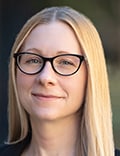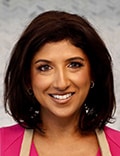On the morning of his 23rd birthday, Thomas Lo was working at his desk. That desk happened to be in Morgan Stanley's lower Manhattan office. That office happened to be in the World Trade Center's South Tower. And Lo's 23rd birthday happened to fall on September 11, 2001.

Dr Thomas Lo
When he heard what was going on in the North Tower, Lo started down 73 flights of stairs. As he reached the 44th floor, the second plane hit and the building rocked. He kept going and made it across the Brooklyn Bridge, unharmed but shaken, his suit coated in dust.
His 23rd birthday was his last day in the finance industry.
Today, Thomas Lo — now MD — runs his own anesthesiology practice and is the owner and culinary director of a New York Chinese restaurant, Spy C Cuisine. Lo describes himself as a "doctor by day, chef by night."
He's not alone. Many MDs have embraced food as a second vocation. While the specific reasons are different, the underlying motivation is the same: A love of cooking intertwines with a commitment to keeping people healthy.
Some, like Lo, run restaurants or moonlight as professional chefs. Others work part-time as recipe developers or food influencers. Some combine their culinary training with their clinical work, teaching their patients cooking techniques in test kitchens.
All these various flavors of doctor-chefs agree: The culinary and medical realms can learn a lot from one another.
Going From Knowledge to Action
When Michelle Hauser, MD, told her high school guidance counselor she wanted to be a doctor, she was met with a laugh. Hauser grew up in a blue-collar town in rural Iowa, and no one in her family had gone to college. The guidance counselor advised her to forget about higher education and pursue a trade.

Dr Michelle Hauser
Hauser loved to cook, so she moved to the Minneapolis-St. Paul, Minnesota, area for culinary training at Le Cordon Bleu and then interned at the pioneering farm-to-table restaurant Chez Panisse, in Berkeley, California.
After her culinary training, Hauser realized she was no longer afraid to fail, and she still dreamed of becoming a doctor. She enrolled at Humboldt State University, Arcata, California, and got a job teaching cooking classes to fund her tuition.
After a youth spent eating unhealthy foods and carrying extra weight, Hauser started exercising and eating better, guided by the Harvard Nutrition Source website. Her cooking students noticed the change and asked for tips, which Hauser gave after reminding them she was not a doctor (yet).
"I had people coming back to me saying, 'My spouse doesn't take any medicines for diabetes anymore, because their blood sugars are normal,' or 'I don't have to take a blood pressure medication anymore,' or 'I don't have to take an antidepressant anymore because I've been eating better and exercising,'" says Hauser.
She took that experience on to Harvard Medical School, Boston, Massachusetts, and was surprised to find that her mentors were less than enthusiastic about lifestyle changes. "What I heard from a lot of my attendings when I was in training was, 'Don't waste your time counseling people on diet changes or lifestyle changes, because they're not going to make them. Better just to prescribe a medicine that we know is going to work,'" Hauser recalls.
Today Hauser is Obesity Medicine director of the Medical Weight Loss Program at Stanford University, Stanford, California. In clinical practice, she says the biggest issue is transforming healthy information into action.
"There are very few people I run into who don't know vegetables are good for them," she says. "But there are a lot of people who don't eat vegetables. What we really need to address is that gap. How do we get from knowledge to action?"
Hauser's cooking students were willing to make dietary changes because they were not just given nutrition facts. They had the opportunity to prepare a variety of healthy foods that were uncomplicated and tasty. The key to demystifying nutritious diets, Hauser discovered, was to illuminate the process as much as the outcome.
Hauser has since created the first comprehensive, open-source curriculum for culinary medicine, a growing, evidence-based field that trains healthcare and foodservice professionals in practical skills for nutritious cooking. The course includes lessons on basic cooking methods such as sautéing and roasting, as well as recipes for soups, salads, beans, grains, and pasta dishes. The curriculum has now been used in more than 100 countries.
Hauser is also the course director for Doctors in the Kitchen, a culinary medicine elective for MD and PA students at Stanford. And as the director of Stanford's Weight Loss Program, she leads group appointments where patients cook along with her in their own kitchens.
"Trying to figure out ways to make healthier foods palatable for lots of different people has been a fun personal experiment."
Confronting a Healthy Food Emergency
As an emergency medicine physician, Sonali Ruder, MD, hasn't always had time to cook. But her passions for food and medicine complement one another. During residency, she started watching the Food Network and cooking to unwind after long days in the high-stress environment of the ER.

Dr Sonali Ruder
On a whim, she entered her spanakopita lasagna recipe into the network's Ultimate Recipe Showdown, and soon found herself cooking for competition host Guy Fieri in Los Angeles, California. "I didn't win, but it totally inspired me," Ruder says.
As a new attending physician in a Manhattan emergency room, Ruder decided she wanted to go to cooking school to learn the fundamentals. "The reason I got into this is because I treat emergencies every day," Ruder says. "Heart attacks, strokes, people on dialysis.…After seeing all of this in the ER, I became interested in how we could prevent or even reverse some of these things — like obesity, high blood pressure, and diabetes — with proper diet and lifestyle modifications."
As a culinary student, Ruder started her blog, The Foodie Physician, which has since evolved into her second career. Today, she works part-time in a community ER in Coral Springs, Florida, while developing, testing, and sharing recipes through her website and cookbooks. While mainstream cooking shows tend to prioritize pizzazz over nutrition, Ruder aims to show that healthy eating can be fun and joyful, too.
Her recent recipes include miso maple glazed salmon, Hasselback sweet potatoes, Greek zucchini fritters, and baked apple cider donuts. "Cooking at home is one of the best ways to follow a healthy diet," Ruder says. "You control what you're eating, and you control cooking techniques. So that's my main goal, to get people in the kitchen."
From 9/11 to Cucumber Salad
Lo's strongest childhood memories are linked to food: wolfing down his dad's homestyle Chinese eggplant, garlic, and minced pork dish; learning how to pleat dumpling wrappers from his mom. During high school, he baked and decorated cakes while interning at a bakery in Buffalo, New York.
After high school, he studied molecular biology and was pre-med at Yale University, New Haven, Connecticut. But instead of going on to medical school, he moved to New York City, enrolled in the French Culinary Institute, and went on to work for French chef Didier Virot. Lo eventually left the chaos of the kitchen for the stability of a finance job — until his 23rd birthday happened.
Finance may have seemed like a good idea at the time, but the carnage of 9/11 shook him back to his two primary passions: medicine and food.
Lo attended Columbia Medical School, New York City, supporting himself by cooking brunch at one of Virot's restaurants, Aix Brasserie, on Sundays.
Lo can empathize with diners at Spy C Cuisine, because he first visited the restaurant as a hungry customer himself. After taking a bite of cucumber salad, his eyes lit up, he requested to meet the chef, and the place became a culinary home.
"Being an anesthesiologist and being a chef, there are a lot of similarities," Lo says. "I need to give medications at the right dosages at the right times in order to get the right result. There's a certain art to it." The same approach serves him in the kitchen.
That "cucumber-salad joy" is the soul that Lo has constantly looked for in his work, and it shows. In 2020, Spy C Cuisine earned its first Michelin Bib Gourmand, an award that recognizes eateries that serve high-quality food at affordable prices.
Lo's specialty, Sichuan Mind-Numbing Sauce, was named as a tongue-in-cheek reference to his day job. "Obviously, the stakes are higher in the operating room, and the cargo is a lot more precious. But the mentality is the same when you are seasoning a vinaigrette or grilling a piece of steak. It's about balance."
Cooking Is Care
By integrating culinary lessons into the medical field and nutrition research into the art of cooking, doctor-chefs embody the concept of "food as medicine."
But it's more than that. The culinary and medical fields both function as a public service, improving how people feel, and sustaining life. For Hauser, Lo, and Ruder, cooking is more than a creative process or a scrumptious end result. It's another way to take care of people.
"Our society is set up so that the unhealthy choice is always the easiest choice," Hauser says. "Something about our food system needs to change. Even if you get from the knowledge to the skills, to make the behaviors stick, there needs to be a little help from the outside, too."
For more news, follow Medscape on Facebook, Twitter, Instagram, and YouTube.
Credits:
Lead Image: E+/Getty Images
Image 1: Thomas Lo
Image 2: Rachel Baker
Image 3: Peter Fontana
Medscape Medical News © 2023
Cite this: How Physician Chefs Perfect Life-Saving Cuisine - Medscape - Jun 30, 2023.

Comments